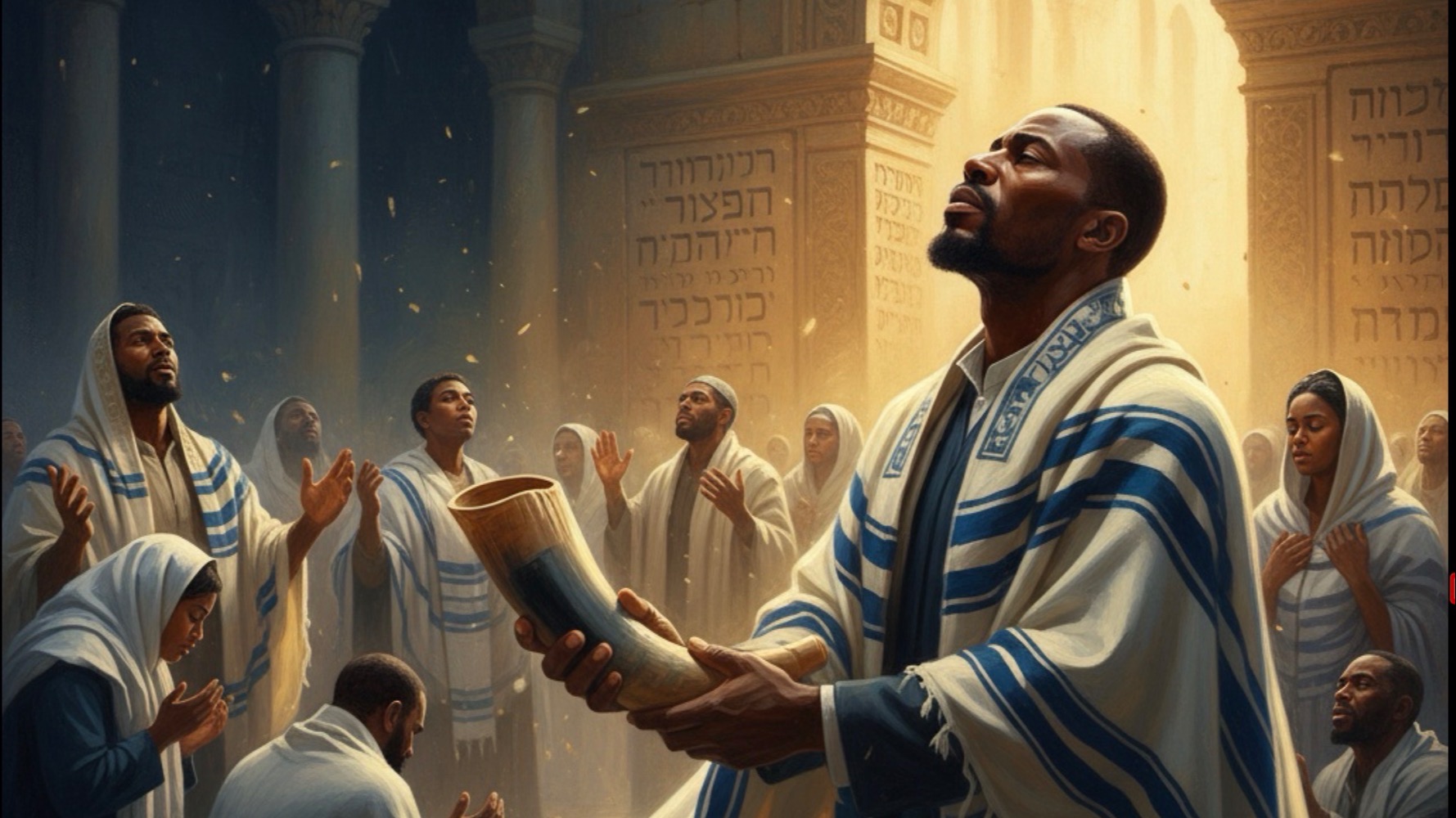Yom Kippur and the Sound of Mercy: A Kingdom Call for Covenant Believers
Oct 02, 2025
Every appointed time (mo’edim) of Yahuah is not just a ritual or cultural marker. It is a divine appointment written into His eternal calendar. Yom Kippur, the Day of Atonement, remains one of the most weighty convocations. It reveals both the depth of our frailty and the immeasurable mercy of Elohiym.
Many ask, “What should Covenant Believers in Yahusha do on Yom Kippur?” I would broaden the question. What should all who are grafted into Israel through Yahusha do on this holy day?
The Word is plain:
“And this shall be a statute for ever unto you: that in the seventh month, on the tenth day of the month, ye shall afflict your souls, and do no work at all… For on that day shall the priest make an atonement for you, to cleanse you, that ye may be clean from all your sins before Yahuah.” (Leviticus 16:29–30, KJV 1611)
“And this shall be an everlasting statute unto you, to make an atonement for the children of Yisra’el for all their sins once a year. And he did as Yahuah commanded Mosheh.” (Leviticus 16:34, CEPHER)
“This is to be a permanent statute for you: on the tenth day of the seventh month you are to afflict your souls and do no kind of work, both the native-born and the outsider dwelling among you.” (Leviticus 16:29, TLV)
This is not a suggestion. It is not a tradition to preserve. It is a forever command.
Messiah, Once for All, Yet the Call Remains
By covenant we know that Yahusha Ha’Mashiach offered Himself as the once-for-all atonement (Hebrews 10:10–14). His blood fulfilled the eternal requirement, and no other sacrifice for sin is needed. Yet the appointments of Yahuah are not cancelled because Messiah came. They are brought into greater fullness.
Yom Kippur for the believer is not about striving for forgiveness already secured. It is about entering into Heaven’s rhythm. It is the moment we acknowledge not only our personal sins but the corporate sins of our people, our nations, our assemblies, and our families.
Daniel showed us this posture:
“We have sinned, and have committed iniquity, and have done wickedly, and have rebelled, even by departing from thy precepts and from thy judgments.” (Daniel 9:5, KJV 1611)
Daniel himself had not fallen into all these sins, yet he identified with Israel. That is the essence of Yom Kippur. It is a day of corporate repentance, corporate intercession, and corporate cleansing.
Jonah, the Whale, and the Corporate Cry
The Book of Jonah is read on Yom Kippur for a reason. It is a pattern of mercy. Jonah resisted, but Nineveh repented. Jonah fled, but Elohiym pursued. Jonah sulked, but Elohiym showed pity.
When Yahusha spoke of Jonah (Matthew 12:40), He was not only pointing us to the sign of His resurrection. He was warning us not to miss the mercy of Elohiym. Yom Kippur is a reminder that His pity is greater than our judgment, and His compassion goes where we might never send it.
One of my sisters in our apostolic cohort, Apostle Khy Traylor, shared a poignant observation this past Sabbath that brings this truth even closer to home. She said that the most profound moment was not only that Abba sent Yahusha to die for our sins, but that in the very process He released Barabbas, who was guilty as charged. Think of it. Mercy extended not just to the repentant, but to the condemned. Grace poured out not only on those waiting in faith, but on the one branded by guilt itself. What a picture of pity that goes beyond what our human sense of justice would ever allow.
This is the heart of Yom Kippur. Mercy where wrath was deserved. Pity where punishment was sure. Compassion released into places we would never send it.
Posture for Covenant Believers in Yahusha on Yom Kippur
Here is the Kingdom posture for this day:
1. Afflict your soul. Fast, humble yourself, quiet the voice of the flesh.
2. Confess corporately. Do not stop at your own sins. Repent for your household, your assembly, your nation, and for Israel.
3. Stand in the gap. Intercede that the blindness of Israel be lifted and that the veil be removed in Yahusha.
4. Release vows. This is the time to cancel idle words, careless promises, and covenants made in rebellion. Let your yes remain yes and your no remain no.
5. Receive mercy and extend mercy. If Elohiym has taken pity on you, invest your prayers for others who are still bound in darkness.
A Kingdom Decree
Yom Kippur is not just about looking backward at what has been done. It is about aligning forward with the government of Elohiym. It is a trumpet blast of mercy. It is a call for nations, assemblies, and families to repent and return.
“For if ye forgive men their trespasses, your heavenly Father will also forgive you.” (Matthew 6:14, KJV 1611)
Let us not be like Jonah, sitting outside the city, angry that Elohiym’s pity stretched further than our own. Let us take our place as priests in the order of Yahusha, lifting our voices for the restoration of Israel and the salvation of the nations.
Closing Charge
Do not treat Yom Kippur as a relic of the past or as an observance meant only for the Jewish people. It is a Kingdom convocation. It is a day of corporate rescue. It is a moment to sound the cry of mercy in the earth.
And remember the lesson of Barabbas. If Elohiym could release the guilty in that moment, how much more will He release mercy today? If His compassion reached into the courtroom of Pilate to free a man condemned, how much more can it reach into our cities, our nations, our families?
If Elohiym had pity on Nineveh, He will have pity on Israel. If He had pity on Barabbas, He will have pity on the guilty still waiting for mercy. And if He had pity on you, He will have pity on another. Lift your voice this Yom Kippur. Let your repentance and intercession rise before His throne.
So let it be. Amein and Amein.
